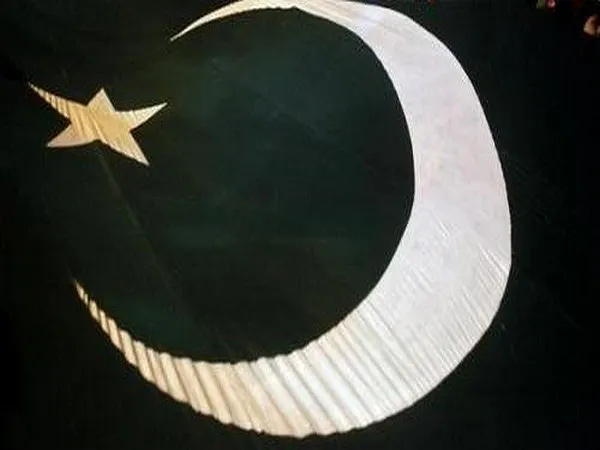The United Nations Human Rights Committee (UNHRC) and other foreign organisations have been paying more attention to Pakistan’s human rights situation. Child marriages, forced religious conversions, and the abuse of blasphemy laws are some of the major issues brought up. These issues have all seriously weakened the rights and liberties of vulnerable groups, especially women and religious minorities. In addition to breaking Pakistan’s international commitments, the persistent abuses of fundamental human rights are a sign of a broader socio-political crisis in which the weakest members of society are being used as bargaining chips.
One of the most serious and contentious human rights abuses in Pakistan is the abuse of the country’s blasphemy laws. Originally designed to safeguard religious sentiment, these laws—which are found in sections 295-298 of the Pakistan Penal Code—have subsequently been exploited for persecution, especially against religious minorities. The Centre for Social Justice (CSJ) reported in 2022 that since 1987, at least 1,855 persons in Pakistan have been charged with blasphemy. Muslims made up 46 per cent of these, although religious minorities like Christians (16 per cent) Ahmadis (11 per cent), and Hindus (2 per cent), were disproportionately represented in these cases.
As of 2024, there were at least 80 people incarcerated in Pakistan on blasphemy charges, which carry sentences ranging from life in jail to the death penalty. Despite no official executions for blasphemy, the threat of extrajudicial violence is ever-present because many suspected people are lynched by mobs. The 2017 murder of Mashal Khan and the 2017 death of Punjab Governor Salmaan Taseer for defying these rules highlight how pervasive and harmful the abuse of blasphemy accusations has grown.
The UNHRC has repeatedly emphasised that these laws are incompatible with international human rights principles and has recommended their modification or repeal. Pakistan is required to protect freedom of expression and belief as a signatory to the International Covenant on Civil and Political Rights (ICCPR). The Pakistani government’s inaction on this abuse, however, betrays a lack of political will to combat the religious extremism that terrorises and violently oppresses the nation.
Another prevalent issue that is not much discussed is child marriages. Despite the existence of the Child Marriage Restraint Act of 1929, Pakistan continues to grapple with the pervasive issue of child marriages. UNICEF reports that around 21 per cent of girls in Pakistan are married before the age of 18, while 3 per cent are married before the age of 15. These figures place Pakistan among the countries with the highest rates of child marriages, particularly in rural and conservative regions like Khyber Pakhtunkhwa, Sindh, and Balochistan.
To fulfil its obligations under international agreements such as the Convention on the Rights of the Child (CRC) and the Convention on the Elimination of All Forms of Discrimination Against Women (CEDAW), Pakistan must act swiftly to end child marriage. Conservative religious groups, however, have been a major obstacle to legislative initiatives. A number of attempts to increase the legal marriage age for girls to 18 have been defeated in Parliament, most notably in 2019, when the Council of Islamic Ideology declared the measure to be “un-Islamic”.
Forced conversions, which disproportionately impact young girls from religious minorities, particularly Christians and Hindus, provide a stark reminder of the conflict between international human rights standards and the influence of conservative interpretations of Islamic law in Pakistan’s legislative processes.
One of the most egregious manifestations of this tension is the ongoing crisis of forced conversions, where young girls from minority communities are abducted, forcibly converted to Islam, and married off to older Muslim men. The Human Rights Commission of Pakistan (HRCP) and various civil society groups report that hundreds of these cases occur annually, with most incidents concentrated in Sindh province.
The majority of victims are Hindu and Christian girls, who often belong to marginalised, impoverished families with little access to justice or legal recourse. Despite the Sindh Child Marriage Restraint Act of 2013, which prohibits marriage before the age of 18, these laws are frequently bypassed, and the judiciary is often complicit in allowing these marriages to proceed under the pretext of voluntary conversion. These forced conversions often occur in a climate of impunity, with perpetrators facing little to no legal consequences. Courts frequently fail to provide justice for victims, as legal proceedings are tainted by religious bias.
Pakistan’s failure to act on these violations has drawn strong criticism from the UNHRC and other foreign organisations. The failure of Pakistan to address these issues is indicative of larger structural issues in the nation’s legal and social frameworks, where women’s rights are frequently violated and religious minorities are viewed as second-class citizens.
Pakistan has frequently reaffirmed its commitment to respecting human rights, but its actual actions speak for themselves. The administration has come under heavy fire from international human rights organisations for its unwillingness to defend minority rights and combat religious extremism.
Pakistan’s reputation in the international community as well as the fundamental rights of millions of people are at risk due to the country’s continued inaction. The international community, especially through bodies like the UNHRC, has a crucial role to play in pressuring Pakistan to adhere to its human rights obligations. However, meaningful change will require more than external pressure—it will necessitate a fundamental shift within Pakistan’s political and religious landscape. Without this, the rights of millions, particularly women and minorities, will remain under threat, and Pakistan will continue to falter in its journey toward becoming a just and equitable society.
Tehmeena Rizvi is a Junior Research Consultant at Indian Council of Social Science research. Her areas of work include gender intersectionality, conflict and development. Views expressed in the above piece are personal and solely those of the author. They do not necessarily reflect Firstpost’s views.

